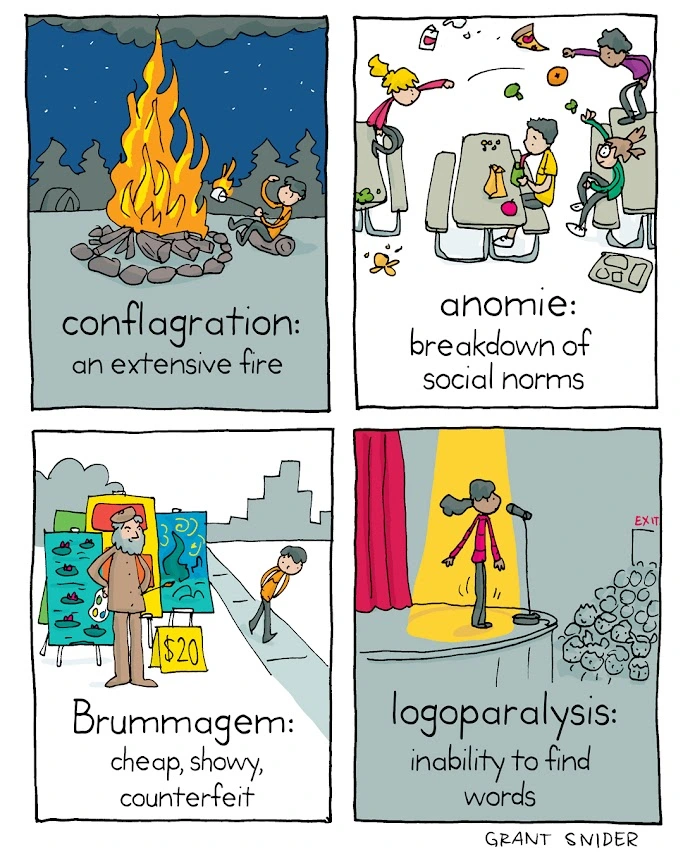this post was submitted on 21 Jul 2024
383 points (97.3% liked)
Comic Strips
12570 readers
3385 users here now
Comic Strips is a community for those who love comic stories.
The rules are simple:
- The post can be a single image, an image gallery, or a link to a specific comic hosted on another site (the author's website, for instance).
- The comic must be a complete story.
- If it is an external link, it must be to a specific story, not to the root of the site.
- You may post comics from others or your own.
- If you are posting a comic of your own, a maximum of one per week is allowed (I know, your comics are great, but this rule helps avoid spam).
- The comic can be in any language, but if it's not in English, OP must include an English translation in the post's 'body' field (note: you don't need to select a specific language when posting a comic).
- Politeness.
- Adult content is not allowed. This community aims to be fun for people of all ages.
Web of links
- [email protected]: "I use Arch btw"
- [email protected]: memes (you don't say!)
founded 1 year ago
MODERATORS
you are viewing a single comment's thread
view the rest of the comments
view the rest of the comments

Not eeeexactly, or perhaps, not only that, always. I'd say it takes several people using it. But this would be used by several people, and just us discussing and using the word in the given context already would have rendered enough use for it to be "a real word".
Easily coined latin words aside, how is "conflagration" a hard word? I'm pretty sure it's quite commonly used as well. Moreso in literature than in everyday speech, but still I hold it's a rather common word.
Around 1800-1850 "conflagration" was more used of a word than "hospitality" was around the 1970's.
https://books.google.com/ngrams/graph?content=conflagration%2Clogoparalysis%2Chospitality&year_start=1800&year_end=2019&corpus=en-2019&smoothing=3
"Logoparalysis" yields no results. So, regardless of how you define "real" words, the Ngram viewer definitely gives good info on their potential past usage
New words are still real words, even if you can't find it in an internet search. Don't lie to me and tell me you didn't immediately understand that word without needing the definition (because it's just such a damn near universal feeling, not every concept has a word YET in English, wild I know). That immediate reaction to a group of letters seems more real to me than your research skills. Words are more than artefacts to dig up and analyze. A fucking wild amount of our English language is informed by some playwright(s?) just making up words and phrases. Words are magic and this is a hill I will die on.
I didn't claim they weren't. Anyone can coin words, but whether they "become real" or not is just up to whether anyone else stars using them and or if they're made up of already known components which clearly indicate the meaning. Like for instance if I wrote random gibberish that I myself had assigned meaning to, you wouldn't be able to tell what it meant unless I used already existing words / conventions for coining new words.
That's the private language argument.
Obviously there are loads of words which get coined and instantly spread in usage, so the "age" of a word doesn't have meaning. The word having meaning is what matters.
If I wrote down lsdkbrjfufurbrnfnflslejje, is that a "real" word? Obviously it's just gibberish I wrote down, but what if I say it means a very specific thing. Does that then make it real? If people started using it, sure.
You very well know what people here mean by "real".
Use it. It's a word. Stop being a fucking troll.
Stop being willfully ignorant.